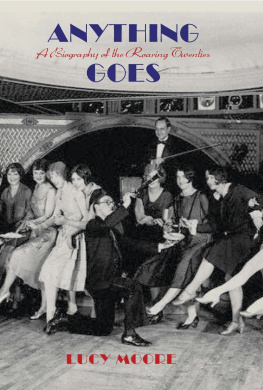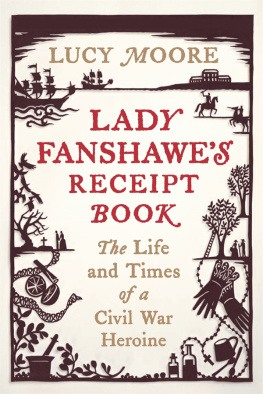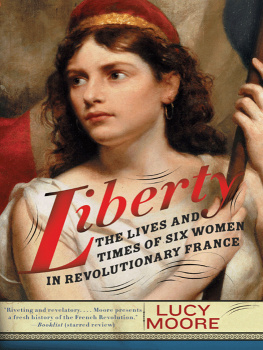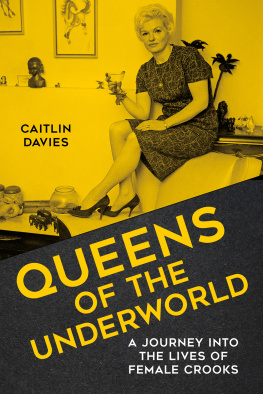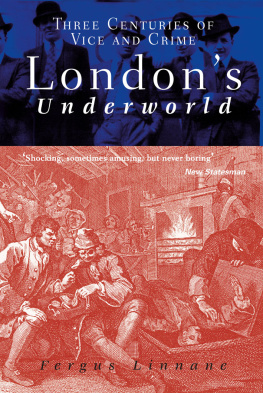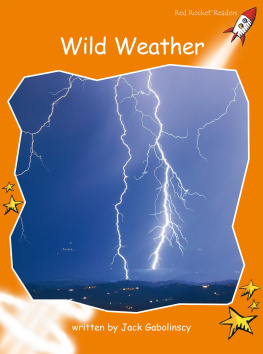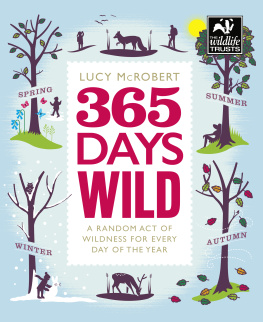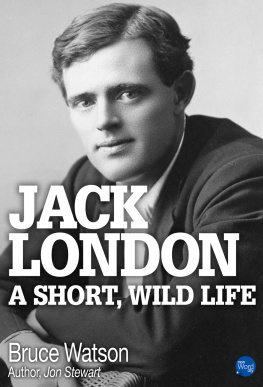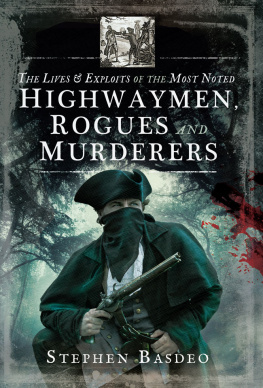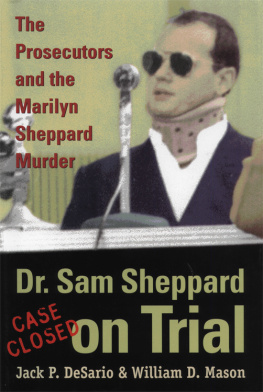The Thieves Opera
The Remarkable Lives and Deaths of Jonathan Wild, Thief-Taker, and Jack Sheppard, House-Breaker
Lucy Moore
Copyright Lucy Moore 1998
The right of Lucy Moore to be identified as the author of this work has been asserted by her in accordance with the Copyright, Designs and Patents Act, 1988.
First published in the United Kingdom in 1998 by Penguin Books.
This edition published in 2014 by Endeavour Press Ltd.
Table of Contents
A Note on the Text
A brief note on money. I am not an economic historian, so this is a very rough estimate based on my own understanding of what things were worth in the eighteenth century as compared to the present day. Although goods had different comparative values in the eighteenth century, roughly one can assume that a shilling was worth about ten pounds in todays money, and a pound, or twenty shillings, was worth about 200 pounds. I think some historians would say that this is over-generous, but considering how much lower the standard of living would have been then, the actual value of money and goods would have been far higher because they were accessible to so small a proportion of the population.
A shilling was made up of twelve pence (each penny worth just under a pound in todays money). A groat was 4d.; a crown was 5s.; and half a crown was 2s. 6d.; a mark was 13s. 4d., a guinea 21s., a moidore, 27s.
A skilled labourer, for example a tailor or carpenter, would earn about 20s. a week; an unskilled labourer about half that. When prices were high, more than half of his salary would be spent on bread to feed his family. A pound of bread cost between 1d. and 2d. (1.50-2). The gulf between rich and poor was vast: some peers spent more on wine each year than their humblest tenants would earn in a lifetime.
Stealing anything worth more than a shilling carried the death penalty. Lace and silk were luxury items, handmade and often imported at great expense; they were frequently stolen because they were hard to trace and easy to dispose of, as well as being much in demand. A lace neckcloth would have cost about 5s., or 50. Similarly, wigs were favourites with thieves; they might be worth anything up to 40 guineas well over 8,000 in modern money. London was rich, even if the wealth was concentrated in a small proportion of the population; and crime paid, even if the penalty for being caught was high. It was worth the risk.
Generally, when quoting eighteenth-century writers, I have modernized grammar and spelling and taken out random italics and capitals, to the extent that it makes the text easier to read.
Introduction
I see Jonathan Wild and Jack Sheppard on several levels. In the first place, and perhaps most importantly for the purposes of this book, their lives were full of excitement and adventure a great story to tell. As much as possible, I have quoted from original sources to allow the story, and the characters, to speak for themselves.
Secondly, they were a means through which I could explore and discuss aspects of the society in which they lived its rituals and mores as well as the day-to-day details of living and surviving. Structurally, I have tried to insert my digressions, for example on hanging or prison life, where they seemed most relevant to the story; they do interrupt the narrative, but I hope the information they provide overrides the inconvenience.
The fictionalized accounts of Wilds and Sheppards lives, most notably The Beggars Opera and Jonathan Wild the Great , gave their lives an additional resonance: they became literary figures as well as mere historical ones. Dickens based aspects of Fagin on Wild, and the Artful Dodger is not wholly unlike Jack Sheppard. Later in the nineteenth century, Sherlock Holmes compared his arch-enemy, Moriarty, to Wild.
Wilds story is particularly relevant to criminal history. Fieldings Bow Street Runners used techniques employed by Wild in his self-created role as Thief-taker General. The techniques of interrogation that Wild perfected dividing suspects to elicit confessions, promising pardons in return for information are still used by policemen today. On the other hand, his criminal empire can be seen as the prototype of modern criminal organizations, including the American Mafia and East End gangs like those of the Kray brothers.
In a sense, they are archetypal figures, too: Wild, the criminal bureaucrat who appears to conform in order to achieve his ambitions; and Sheppard, the individualist for whom freedom is the only aim, the original, uncontainable rebellious youth.
I would like to thank Georgina Capel; Robin Birley and Andrew Roberts for introducing me to her; Peter Carson, Andrew Kidd, Keith Taylor, Richard Duguid and Jessica Brooks at Penguin; Bela Cunha; and Clare Paterson and Jonathan Burnham for their initial encouragement.
This book is dedicated to my grandparents.
*
TOM CLINCH
As clever Tom Clinch, while the rabble was bawling,
Rode stately through Holborn to die in his calling,
He stopt at the George for a bottle of sack,
And promised to pay for it when he came back.
His waistcoat, and stockings, and breeches, were white;
His cap had a new cherry ribbon to tiet.
The maids to the doors and the balconies ran,
And said, Lack-a-day, hes a proper young man!
But, as from the windows the ladies he spied,
Like a beau in his box, he bowd low on each side!
And when his last speech the loud hawkers did cry
He swore from his cart, It was all a damnd lie!
The hangman for pardon fell down on his knee;
Tom gave him a kick in the guts for his fee:
Then said, I must speak to the people a little,
But Ill see you all damnd before I will whittle!
My honest friend Wild (may he long hold his place)
He lengthend my life with a whole year of grace.
Take courage, dear comrades, and be not afraid,
Nor slip this occasion to follow your trade;
My conscience is clear, and my spirits are calm,
And thus I go off without prayer-book or psalm;
Then follow the practice of clever Tom Clinch,
Who hung like a hero and never would flinch.
JONATHAN SWIFT, 1726/7
Part One
London is their scene of action; and to live in any other place is living like fishes out of water.
G E., Authentic Memoirs of the Life and Surprising Adventures of John Sheppard by Way of Familiar Letters from a Gentleman in Town , 1724
Chapter One London
In 1708, when Jonathan Wild arrived in London from the Midlands town of Wolverhampton, it was undoubtedly the largest and most populous city in the whole of Europe. The city boasted a population of over 600,000, more than a hundred times that of Wolverhampton and twenty times larger than that of Norwich, the second-largest city in Britain. Londons circumference, encompassing its many fast-growing suburbs like Chelsea, Hampstead and Camberwell, as well as the city proper from the Tower of London to Westminster, was estimated in 1725 to be thirty-six miles.
Much of the centre of the city had been destroyed in the Great Fire in 1666, and the old timber buildings had been replaced hurriedly and cheaply in the rush to rehouse Londons new homeless. The cobbled streets were full of mud and dust because of the building work that was constantly under way, which combined with the clouds of sooty smoke that hung over the city to coat its buildings and inhabitants with a layer of dusty grime. The new houses were made of brick or stone, rather than wood, for obvious reasons, and on the whole were more hygienic, healthier places in which to live; but the haste with which they had been constructed made them unstable. It was not uncommon to hear the loud crash of masonry tumbling or even to see a whole building collapsing, as the house in the background of Hogarths Gin Lane is doing. Dr Johnson described the London of his youth as a place where falling houses thunder on your head.
Next page

